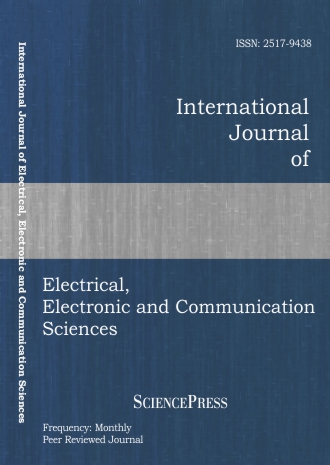
Scholarly
Volume:7, Issue: 2, 2013 Page No: 157 - 160
International Journal of Electrical, Electronic and Communication Sciences
ISSN: 2517-9438
2249 Downloads
Performance Analysis of Adaptive LMS Filter through Regression Analysis using SystemC
The LMS adaptive filter has several parameters which can affect their performance. From among these parameters, most papers handle the step size parameter for controlling the performance. In this paper, we approach three parameters: step-size, filter tap-size and filter form. The regression analysis is used for defining the relation between parameters and performance of LMS adaptive filter with using the system level simulation results. The results present that all parameters have performance trends in each own particular form, which can be estimated from equations drawn by regression analysis.
References:
[1] Douglas L, Jones, Learning Characteristics of Transposed-Form LMS